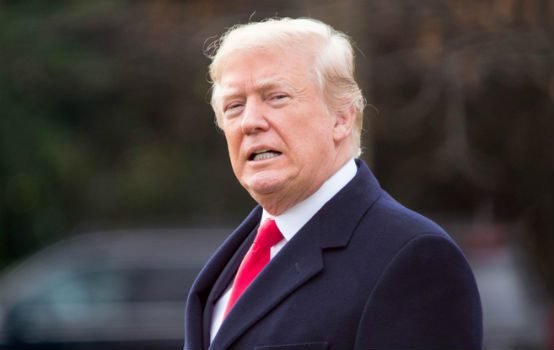Trump Should Call Congress’s Bluff on Our Endless Wars

Who says Democrats and Republicans can’t agree on anything? Washington closed ranks Thursday behind two wars President Donald Trump has proposed winding down as the Senate voted 68-23 to advance a resolution warning against “precipitous withdrawal” from Afghanistan and Syria.
Afghanistan is now the longest war in U.S. history, making any withdrawal seem anything but “precipitous.” Syria hasn’t even been authorized by Congress. In both cases, our men and women in the armed forces have already achieved the goals that are militarily attainable. “It doesn’t get much more pathetic,” Congressman Justin Amash, a Michigan Republican, said of the Senate vote.
The resolution is non-binding, like the Democrats’ toothless measures to stop George W. Bush’s Iraq “surge” over a decade ago. Still, taken at face value, it inverts Congress’s constitutional war powers by allowing lawmakers to shirk their power to declare war while frustrating presidential efforts to pursue peace.
When Trump twice bombed Syria without congressional approval, the Beltway applauded. Veteran Washington reporter Bob Woodward’s book repeats the president’s probing questions about how long we must stay in Afghanistan with an air of disbelief better suited to “fake news” shared on Facebook. Trump’s call late last year to bring troops home from both war-torn countries elicited bipartisan criticism and the abrupt resignation of Pentagon chief James Mattis.
To make matters worse, only three Republican senators—Ted Cruz of Texas, John Kennedy of Louisiana, and Mike Lee of Utah—voted to stand with their president against these endless nation-building exercises. Kentucky’s Rand Paul, who was not present for the vote, would surely have been a fourth. Even Chuck Schumer, the third straight Senate Democratic leader to have voted for the Iraq war, opposed this anti-withdrawal amendment.
During the State of the Union address on Tuesday night, Trump should call Congress’s bluff. He should dare legislators to do their jobs and vote to authorize continuing these wars—or he will end them. Put the onus on the House and Senate to fulfill their constitutional duties.
Trump may find that he has unlikely allies in his would-be 2020 Democratic presidential foes. The one bright spot in the Senate vote was that Bernie Sanders, Elizabeth Warren, Kamala Harris, Cory Booker, Kirsten Gillibrand, and Amy Klobuchar were all on the side of withdrawal. How many ambitious Democrats will vote to give a Republican president a blank check for war as an election year approaches?
GOP lawmakers will have to decide whether they stand with their president—who wants to cut America’s multi-trillion dollar losses in the Middle East—and rank-and-file Republican voters in ending these wars. Those who want to stay in Syria and Afghanistan quite likely cast their ballots for Hillary Clinton.
Up until now, Trump’s big fight with the establishment has been over immigration and the border wall. Amid his belated turn towards the more populist parts of his program, he should not forget to spend political capital on America’s wars as well. Trump now says Republican congressional leaders misled him on the wall. It has been even worse on foreign policy.
Partisans are dug in on the border. But on war, Trump has some opportunities to win over converts. Will House Speaker Nancy Pelosi sit stone-faced behind him as he agrees with the Progressive Caucus on foreign policy?
Much is riding on whether a course correction is possible in Afghanistan and Syria. Trump has heeded the hawks in his party—and inside his own administration—on Yemen, Iran, and perhaps soon Venezuela. Breaking free of their stranglehold could help put his presidency back on track. Otherwise he will end up ceding foreign policy to the progressives who want to usher him out of office either by impeachment or electoral defeat.
Trump’s call to bring the troops home has left him isolated in Washington. If he makes withdrawal a priority in the State of the Union, he may find that he has more company throughout the country than he thinks.
W. James Antle III is editor of The American Conservative.
Comments